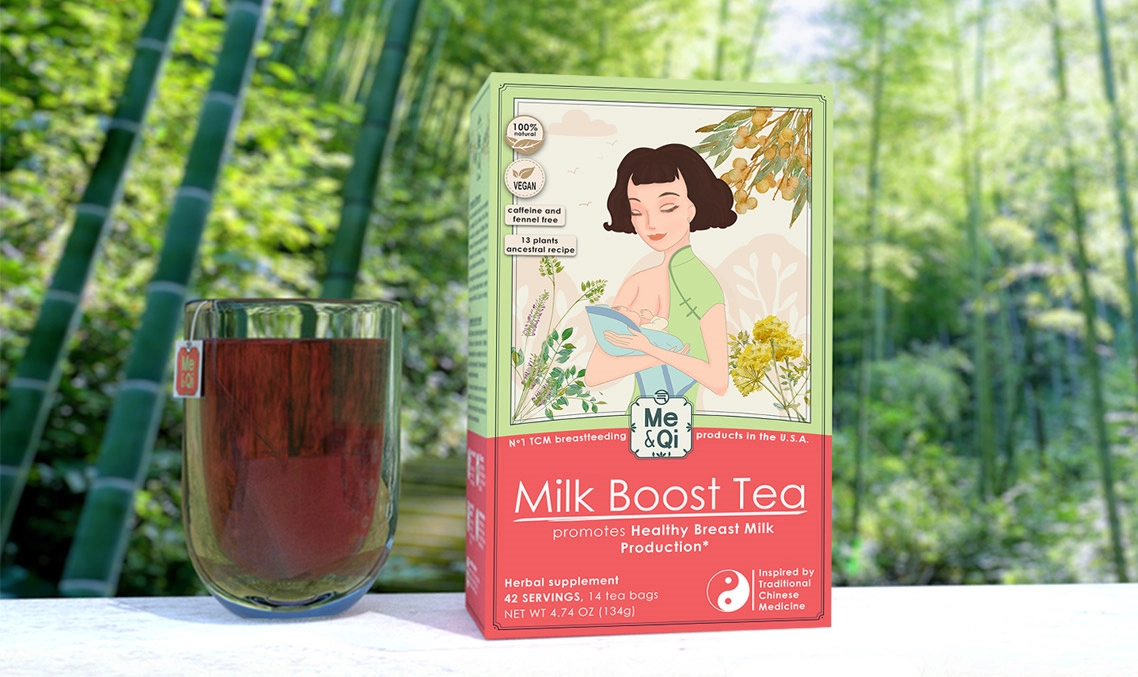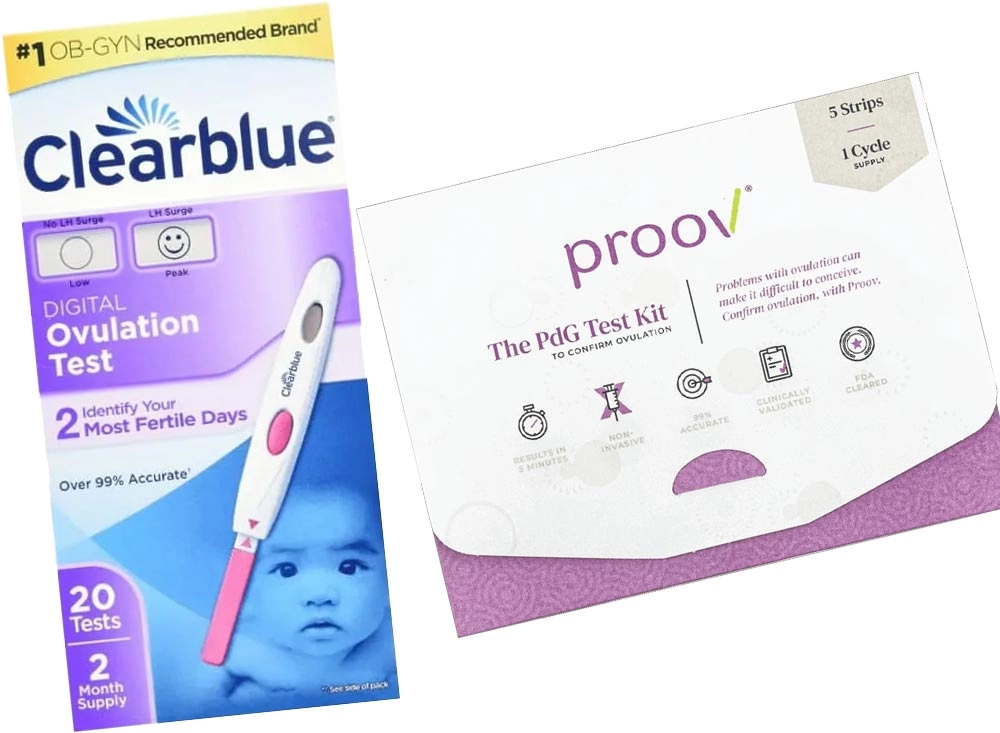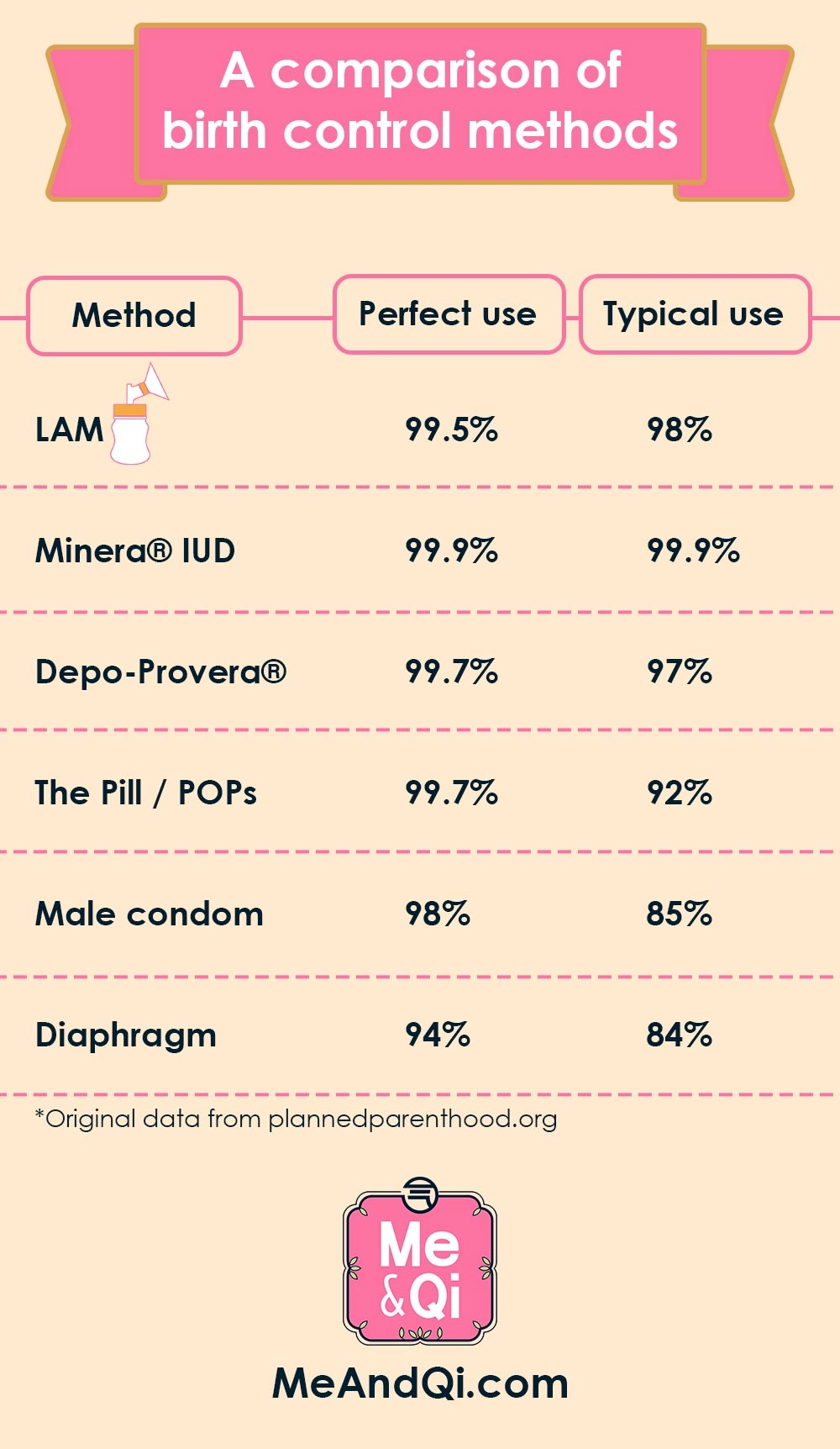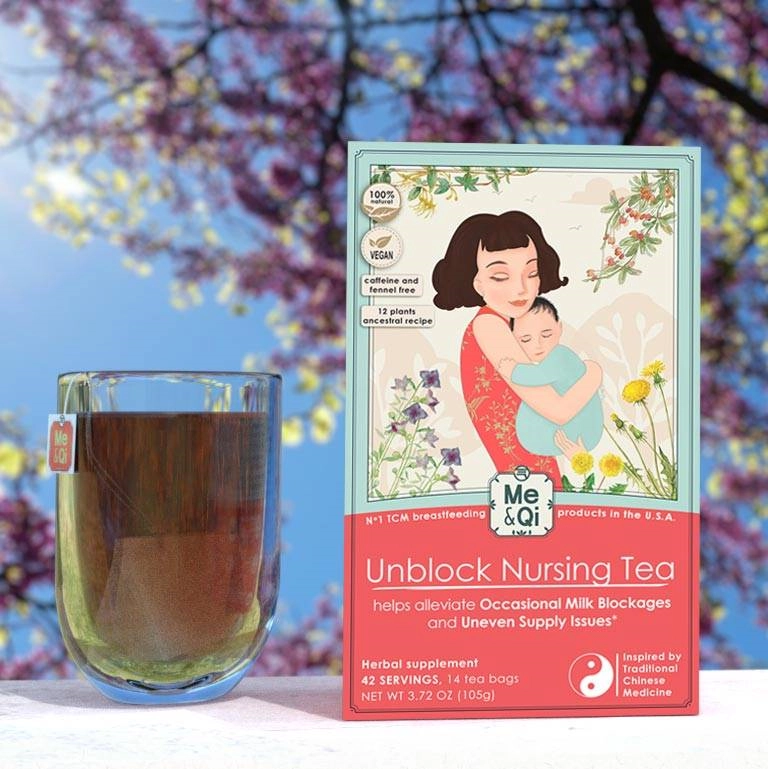Spotting if you ovulate while breastfeeding can be very difficult, especially if your periods aren't back.
In this article we list all the possible signs of ovulation you should be looking for. We also cover a bunch of related questions that we often get here at Me & Qi. Click on a specific question if you want to directly jump there:
- What are the signs of ovulation while breastfeeding?
- Do ovulation tests work while breastfeeding?
- How soon do you ovulate while breastfeeding?
- How can I avoid ovulating and getting pregnant while breastfeeding?
- How can I get my fertility back while breastfeeding?
- Does breastfeeding affect egg quality?
What are the signs of ovulation while breastfeeding?
Q: I've been breastfeeding for 8 months and my periods aren't back yet. Is there any chance that I can get pregnant? What are the signs of ovulation that I should be looking for?
A: If you're breastfeeding, the most obvious sign you'll get is a rather sudden decrease in your milk supply. It'll be quite easy for you to spot it if you're pumping, harder if you're feeding your little one at the breast.
The reason for this decrease in milk production is because your level of prolactin, the hormone responsible for milk production, is influenced by the hormones that facilitate your ovulation.
Normally your milk production level will get back to normal at the end of your ovulation cycle (only to decrease again 28 days afterwards).

Some women however struggle to get back to their previous levels of milk production. For these women a good tip is to drink Milk Boost Tea. It's a 100% natural herbal tea designed to increase milk production. We've seen several success stories where women who saw dramatic reductions in their milk supply recovered it thanks to Milk Boost Tea.

A second sign that you might be ovulating is a change in your milk taste. In fact it might change so much that your baby may refuse to drink anymore. As such if you see a decrease in your milk supply and unusual reactions to your milk from your baby, you have a pattern of signs that may indicate ovulation.
The third and last sign of ovulation that's specific to breastfeeding women is that your breasts might develop sudden clogged ducts. We're not quite sure why but it's probably due to the changes in hormone levels that come with ovulation. Some women even report developing painful mastitis when they start ovulating again.
If you get clogged ducts, please do not breastfeed or pump less as that will make it even worse. Do not breastfeed more either. The best thing you can do is keep as steady a rhythm as possible. You might also want to drink Unblock Nursing Tea, a herbal tea that typically works wonders for clogged ducts. More details about what you can do in our article on relieving clogged ducts.
Besides signs specific to breastfeeding women, you'll also get common ovulation signs that all women get:
- An increase in base body temperature (BBT): as you near ovulation, your BBT will first decrease and then rise. When your BBT is 0.4 to 1.0 degree Fahrenheit higher than usual, this indicates ovulation. Your BBT can vary a lot so monitor it for a few weeks to understand what's your normal and to better spot any unusual changes. It's better to measure it in the same conditions and at the same time of the day, for instance in your bed when you wake up.
- Change in cervical mucus: when you ovulate, your cervical mucus should look a bit like egg whites, clear, slippery and stretchy. After ovulation is finished, the mucus disappears entirely or becomes cloudy.
- Change in cervix texture: the texture is typically softer and looser during ovulation and tighter afterwards.
- Abdominal pain or distention, often on one side of the abdomen.
- Mood swings
Last but not least, probably the easiest way to identify if you might be ovulating or not is to buy an ovulation test. Manufacturers from tests that work by measuring LH hormone levels and tests that measure PdG levels have both confirmed they work while breastfeeding. So make sure you buy an ovulation test that belongs to either two categories. Read our answer to the next question for more details.
Do ovulation tests work while breastfeeding?
Q: I'm breastfeeding and don't have my periods yet. However my doctor told me I could still ovulate. How do I know? Are ovulation tests reliable while breastfeeding?

A: There are two major types of ovulations tests out there.
The first ones are the so-called Ovulation Predictor Kits (OPKs) that are based on detecting Luteinizing Hormone (LH) levels. LH is the hormone released just prior to ovulation that causes the follicle that contains your egg to rupture. In short a LH surge means the signal has been sent for your egg to be released.
The second type of ovulation tests measure PdG levels in urine. PdG is transformed from progesterone, which is the hormone produced by the empty follicle that just released an egg. So presence of PdG in urine means that ovulation has just occurred.
Manufacturers from both those types of tests have confirmed that they work as intended if you breastfeed.

We therefore recommend you buy ovulation tests that belong to either two categories, either measuring LH or PdG levels.
How soon do you ovulate while breastfeeding?
Q: With my husband we'd really like to have siblings who are as close in age as possible. I'd also like to breastfeed the first one for as long as possible as I know that's better for his health. How soon can I realistically ovulate and get pregnant while breastfeeding?
A: Breastfeeding requires the brain to release prolactin hormone. But producing prolactin inhibits the brain's ability to produce the other hormones necessary for ovulation.
This is why without breastfeeding ovulation can occur as soon as 3 weeks after delivery, the average time being 40-50 days. With breastfeeding however that time is delayed to several months after birth, depending on your breastfeeding pattern, volume and frequency. The more you breastfeed and the more often you breastfeed, the longer the delay.
Some women even follow the LAM methodology which virtually guarantees they will not be ovulating for at least 6 months after birth.
How can I avoid ovulating and getting pregnant while breastfeeding?
Q: I was warned a lot by doctors after my first that just because you are nursing and may not have your period again yet, you can still get pregnant. Is there anything I can do to avoid getting pregnant while breastfeeding?

A: It is possible to use breastfeeding as a birth control method. In fact if you follow the so-called lactational amenorrhea method (LAM), it can be one of the most effective birth control methods out there with up to 99.5% effectiveness!
The LAM methodology states that if:
- Your baby is less than 6 months old
- Your periods are not back
- You breastfeed exclusively (i.e. no other solid or liquid)
then you can be sure at 99.5% that you're infertile (that's higher than condoms or the pill!).
LAM might even work beyond 6 months if you keep breastfeeding exclusively. For some women it even works for more than 12 months! However beyond 6 months we recommend you often test yourself to see if you're ovulating or not.
If you want to read more on this topic, everything you need to know in our article about using breastfeeding as birth control.
How can I get my fertility back while breastfeeding?
Q: We're thinking about having our second one but I'm still breastfeeding. Is there anything I should be doing to get my fertility back while breastfeeding?
A: There are three things you can do to maximize the chances you'll get fertile again whilst breastfeeding.
The first thing is to reduce your milk production volume and/or the frequency at which you breastfeed or pump. This happens naturally as your baby gets older. It sends a signal to your brain to start producing hormones necessary for ovulation although there is no guarantee you'll start to ovulate soon afterwards.
Secondly you can create some form of separation between you and your baby. For instance you could be going back to work or find someone to take care of your baby during a few hours every day. Some studies have proven these types of separations accelerate your fertility coming back.
Lastly you could introduce abrupt changes in your breastfeeding pattern. Changes like stopping breastfeeding at night or switching from actually breastfeeding to pumping. You should be careful though: abrupt changes can cause engorged breasts, clogged ducts or, in some cases, mastitis.
To minimize those risks we recommend you make those changes while drinking Unblock Nursing Tea, a natural herbal tea that helps prevent engorgement and clogged ducts.

Does breastfeeding affect egg quality?
Q: I'm still breastfeeding but I got my periods back already. I'm thinking about getting pregnant again but I'm worried my breastfeeding might affect my eggs' quality. Any truth to that?
A: There is no evidence to support that breastfeeding may in any way harm your egg's quality. Thousands of mothers every year go through pregnancy while breastfeeding.
A common concern is that the hormone oxytocin, released by nipple stimulation while breastfeeding, could trigger early labor or even miscarriage. It's a concern because oxytocin injections are often used by medical professionals to trigger contractions during labor. However there is no evidence to suggest a connection between miscarriage and breastfeeding in a normal pregnancy. Evidence suggest that oxytocin doesn't impact the uterus during the pregnancy. It looks like the uterus only becomes sensitive to the hormone at the time of labor.
Does pregnancy have a negative impact on breastmilk quality? There is also no evidence to suggest that being pregnant impacts negatively the quality of your breastmilk. Your milk may contain trace amounts of pregnancy hormones but these are not harmful to your breastfeeding baby.
Of course, your case might be unique or you might be in an at-risk pregnancy. If that's the case, you should contact a medical professional to ensure that continuing breastfeeding while pregnant is best suited to your unique situation.

